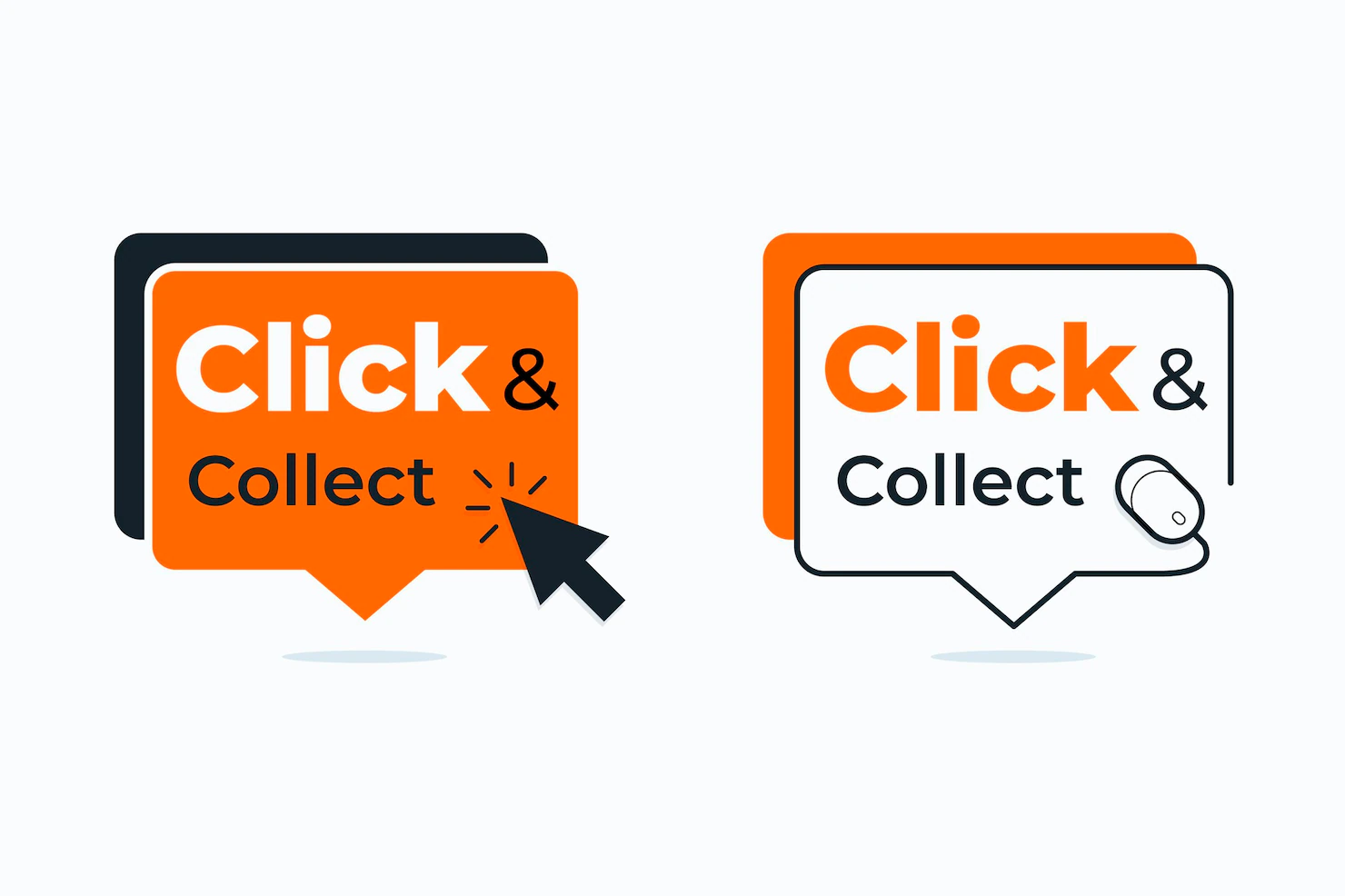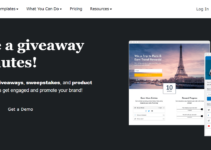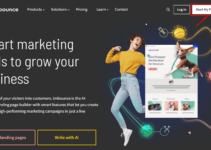In this article, we have featured Landing Page vs Website: What’s the Difference? A website is a group of interconnected pages that share a domain name. A landing page, on the other hand, is a stand-alone page that is designed for a specific purpose, such as capturing a lead or promoting a product.
Most businesses have a website to serve as an online hub for their company. This is where customers can learn more about your products or services, read blog posts, and get in touch with your team.
A landing page, on the other hand, has one purpose: to convert visitors into leads or customers. A well-designed landing page will include elements like a persuasive headline, social proof, and a powerful call-to-action (CTA).
If you’re running a digital marketing campaign—such as an email campaign or Google Ads campaign—you should send visitors to a landing page rather than your website’s home page. The reason for this is that it’s much easier to get someone to take a specific action when they land on a dedicated page that’s been optimized for conversion.
Table of Contents
Website vs Landing Page: Which do You Need?
The short answer is both! A website is essential for any business that wants to establish an online presence. But if you’re running digital marketing campaigns, you’ll also need to make use of dedicated landing pages to maximize your conversion rate.
Think of your website as the foundation of your online presence. It’s where you provide detailed information about your products or services, publish blog posts, and list your contact information.
Landing pages are designed to promote a specific product or offer and get visitors to take action. For example, if you’re running a Black Friday sale, you would create a dedicated landing page with all the details about the sale and include a CTA that encourages visitors to shop now.
While it’s important to have both a website and one or more landing pages, they serve different purposes and should be treated as such in your marketing efforts. By understanding the difference between these two types of pages, you can build an effective online presence that drives results.
1. Website vs. Landing Page: Content Focus
The content on a website is typically more general in nature, while the content on a landing page is laser-focused on a specific offer or product. For example, if you sell shoes, your website might have product pages for all of the different types of shoes you sell, as well as blog articles about topics like “How to Choose the Right Running Shoe” or “The 5 Best Summer Sandals.” In contrast, your landing pages would be focused on converting visitors into leads or customers by featuring unique selling points for specific products—like “Free Shipping on Orders Over $100” or “Get 20% Off Your First Purchase.”
2. Website vs. Landing Page: Primary Goal
While websites can have multiple goals—like providing information, selling products, or building brand awareness—landing pages only have one purpose: to convert visitors into leads or customers. This single-mindedness allows you to fine-tune every element on your landing page to support your conversion goal—whether it’s getting visitors to sign up for your email list or downloading your latest e-book.
3. Website vs. Landing Page: call-to-action (CTA) Buttons
Websites typically have multiple CTA buttons that link to different areas of the site, whereas landing pages only have one primary CTA button that leads to the conversion goal. For example, if you’re selling running shoes on your website, you might have separate CTA buttons for each type of shoe (e.g., “Shop Men’s Running Shoes” and “Shop Women’s Running Shoes”). However, on your landing page for a summer sandal sale, your CTA button might say something like “Save 20% Off Sandals Now!”
Why You Need Both
While a landing page can technically exist without a website (for example, if you’re running a paid ad campaign and sending traffic directly to the landing page), it’s not advisable.
This is because you need a website to provide context for your landing page and to give visitors somewhere to go if they’re not ready to convert.
Think of it this way: a website is like a store, and a landing page is like a specific product in that store. You wouldn’t set up just one product in your physical store without any context or additional products around it, would you? The same principle applies online.
How to Use Them Together
The best way to use websites and landing pages together is to think of your website as the foundation on which your lead-generation efforts are built.
Your website should provide valuable content and resources that will help persuade visitors to opt into your landing pages so they can receive more targeted information from you.
For example, say you have a blog on your website about gardening tips. One of your blog posts might be titled “10 Tips for Growing the Perfect Tomato Plant.
“At the end of that blog post, you could have a call-to-action (CTA) that invites readers to download an ebook about tomato gardening in exchange for their email addresses. That ebook would be delivered via a lead capture form on a separate, but associated, landing page.
In this scenario, the blog post acted as both content marketing AND lead generation because it provided value to the reader while also collecting their contact information.
You can then use that contact information to continue marketing to them through email marketing or retargeting ads.
Also, Read:
- Landing Page SEO: Ways to Get Your Pages Found
- A/B Testing Your Landing Page: The Ultimate Guide
- How to Create a Video Landing Page in Easy Steps
- How to Create a PPC Landing Page That Converts
Conclusion: Landing Page vs Website
In short, every business needs a website— but if you want to generate leads and sales from digital marketing campaigns, you’ll also need to make use of landing pages. By understanding the difference between these two types of pages, you can build an effective online presence that drives results.









